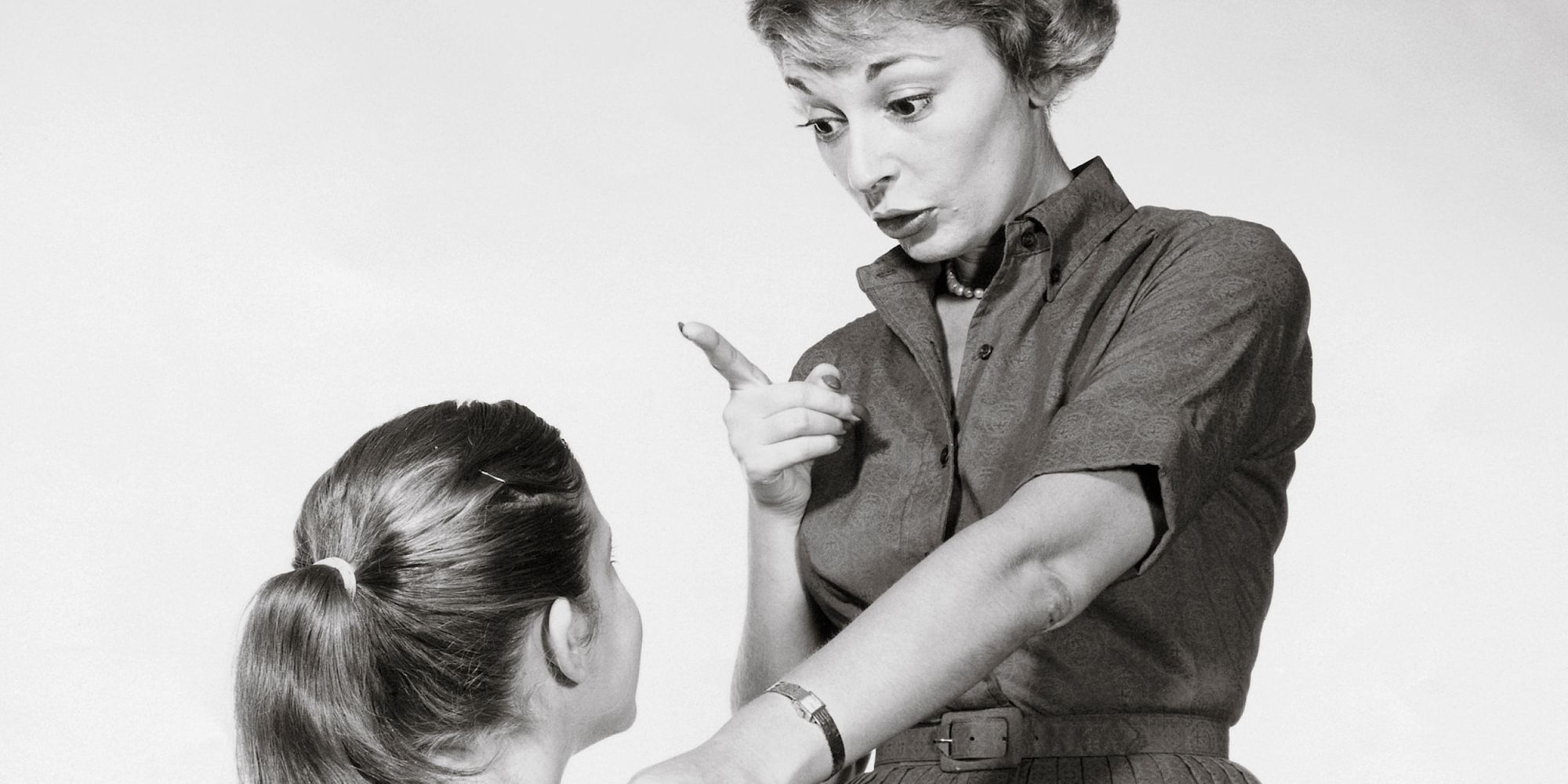Why Your Mother Is Right
The hidden risks of bucking tradition.

Every Month I publish a newsletter called "The Jungle Gym."
It's a collection of ideas and resources to help you think clearer and work smarter.
You can check out previous issues and subscribe here.
Years ago, I was visiting the drug store with a friend who was looking for a cold remedy. As we zeroed in on the right product I noticed her reaching for the branded cold meds.
"Why not buy the generic?" I asked, gesturing to the store-branded product which was two-thirds the cost.
"My mom always said generics don't work," she said. "And, I figure why take the risk?"
"What risk?" I retorted. "It's the same active ingredient. You're just paying a premium for the packaging."
At the time, it seemed obvious she was making an irrational choice. I had recently listened to a Freakonomics podcast comparing how experts and non-experts purchase medicine. According to the economist being interviewed, domain experts like pharmacists and doctors are more likely to buy the cheaper generics versus the expensive name brands. While the economist stopped short of calling the rest of us rubes, it left me certain I didn't want to be the type of consumer who fell for this scam.
The memory of debating with my sick friend re-emerged recently after listening to Petter Attia’s interview with Katherine Eban, the reporter who uncovered the staggering level of fraud that's been taking place in India and China's generics industry.
Recalling the incident, I couldn't help but cringe remembering how certain I had been that I was smarter than my friend's ‘superstitious’ mother. Reflecting on where my thinking had led me astray, I recalled a lesson from Nicholas Nassim Taleb's book Skin in the Game:
"Rationality is not what has conscious verbalistic explanatory factors; it is only what aids survival, avoids ruin."
In other words, we all must make decisions with incomplete information. When the consequences of those decisions have the potential to be catastrophic, we need to switch our focus from finding the option that appears “optimal” to finding the one that’s least risky. While a belief like "generics aren't as effective" may appear irrational because there’s no apparent difference between branded and white-label products, there may be hidden differences that introduce unseen risk. Said another way, in a complicated world, you can’t be 100% sure that generic drugs won’t risk your health or even your life because of those hidden differences.
This capacity to follow traditions, often without question, has aided humans in our domination of the planet. To illustrate, author Joseph Henrich shares what happened when ritualistic traditions around food preparation were abandoned. The following passage from his book The Secret of Our Success concerns the preparation of manioc, an edible tuber that if eaten too often can result in cyanide poisoning:
“In the Colombian Amazon indigenous Tukanoans use a multistep, multiday processing technique [to prepare the manioc] that involves scraping, grating, and finally washing the roots in order to separate the fiber, starch, and liquid. Once separated, the liquid is boiled into a beverage, but the fiber and starch must then sit for two more days when they can then be baked and eaten.
Such processing techniques are crucial for living in many parts of Amazonia, where other crops are difficult to cultivate and often unproductive. However, despite their utility, one person would have a difficult time figuring out the detoxification technique. Consider the situation from the point of view of the children and adolescents who are learning the techniques. They would have rarely, if ever, seen anyone get cyanide poisoning, because the techniques work. And even if the processing was ineffective, such that cases of goiter (swollen necks) or neurological problems were common, it would still be hard to recognize the link between these chronic health issues and eating manioc. Most people would have eaten manioc for years with no apparent effects. Low cyanogenic varieties are typically boiled, but boiling alone is insufficient to prevent the chronic conditions for bitter varieties. Boiling does, however, remove or reduce the bitter taste and prevent the acute symptoms (e.g., diarrhea, stomach troubles, and vomiting).
So, if one did the common-sense thing and just boiled the high-cyanogenic manioc, everything would seem fine. Since the multistep task of processing manioc is long, arduous, and boring, sticking with it is certainly non-intuitive. Tukanoan women spend about a quarter of their day detoxifying manioc, so this is a costly technique in the short term. Now consider what might result if a self-reliant Tukanoan mother decided to drop any seemingly unnecessary steps from the processing of her bitter manioc. She might critically examine the procedure handed down to her from earlier generations and conclude that the goal of the procedure is to remove the bitter taste. She might then experiment with alternative procedures by dropping some of the more labor-intensive or time-consuming steps. She’d find that with a shorter and much less labor-intensive process, she could remove the bitter taste. Adopting this easier protocol, she would have more time for other activities, like caring for her children. Of course, years or decades later her family would begin to develop the symptoms of chronic cyanide poisoning.
Thus, the unwillingness of this mother to take on faith the practices handed down to her from earlier generations would result in sickness and early death for members of her family. Individual learning does not pay here, and intuitions are misleading. The problem is that the steps in this procedure are causally opaque—an individual cannot readily infer their functions, interrelationships, or importance. The causal opacity of many cultural adaptations had a big impact on our psychology.
Wait. Maybe I’m wrong about manioc processing. Perhaps it’s actually rather easy to individually figure out the detoxification steps for manioc? Fortunately, history has provided a test case. At the beginning of the seventeenth century, the Portuguese transported manioc from South America to West Africa for the first time. They did not, however, transport the age-old indigenous processing protocols or the underlying commitment to using those techniques. Because it is easy to plant and provides high yields in infertile or drought-prone areas, manioc spread rapidly across Africa and became a staple food for many populations. The processing techniques, however, were not readily or consistently regenerated. Even after hundreds of years, chronic cyanide poisoning remains a serious health problem in Africa. Detailed studies of local preparation techniques show that high levels of cyanide often remain and that many individuals carry low levels of cyanide in their blood or urine, which haven’t yet manifested in symptoms. In some places, there’s no processing at all, or sometimes the processing actually increases the cyanogenic content. On the positive side, some African groups have in fact culturally evolved effective processing techniques, but these techniques are spreading only slowly.
Perhaps the traditionalists who followed every step of the traditional manioc preparation process were ridiculed for being irrational by those who took shortcuts. We’ll never know. That’s because the traditionalists managed to pass on their genes and cultural learnings to future generations, and the short-cutters didn’t.
What does this have to do with buying branded versus generic drugs? Like the traditionalists, my friend’s mom was practicing and transmitting her own useful belief– not about the nature of generic drugs but rather about the perils of doing business with a party that lacks sufficient skin in the game. In his book, Alchemy, author Rory Sutherland explains the connection between brands and reputational investment:
"While a brand name is rarely a reliable guarantee that a product is the best you can buy, it is generally a reliable indicator that the product is not terrible...someone with a great deal of upfront reputational investment in their name has far more to lose from selling a dud product than someone you’ve never heard of, so, as a guarantee of non-crapness, a brand works.”
Ultimately I don't remember whether my friend chose branded drugs or generics. Maybe her meds weren't made by a corrupt firm. Or perhaps this product was made to the standard. The point is I don’t know. So instead of trying to outsmart mom’s advice, the ‘rational’ thing to do is simply to heed it. Revisiting Taleb’s advice on the topic:
"When you consider beliefs do not assess them in how they compete with other beliefs, but consider the survival of the populations that have them."
